Chief Financial Officers (CFOs) are playing a critical role as companies begin to wade into the new economic landscape. Many organizations are recognizing the need for CFOs who can take on an increased level of responsibility.
Eton Bridge Partners worked with BoardEx to dive deeper into the emerging trends for CFOs. Their data-backed report explores the evolution of these positions with a review of more than 1,000 CFOs appointed in 2019 and 2020 in the UK.
While the economy is beginning to bounce back from the COVID-19 pandemic, executives, including CFOs still have much work to do to determine the amount of risk their organization is comfortable taking on.
This article will look at the role of CFO, what qualifications are needed, and what are the common backgrounds and demographic details found in recent appointments to this critical role.
The Evolution of CFO Responsibilities
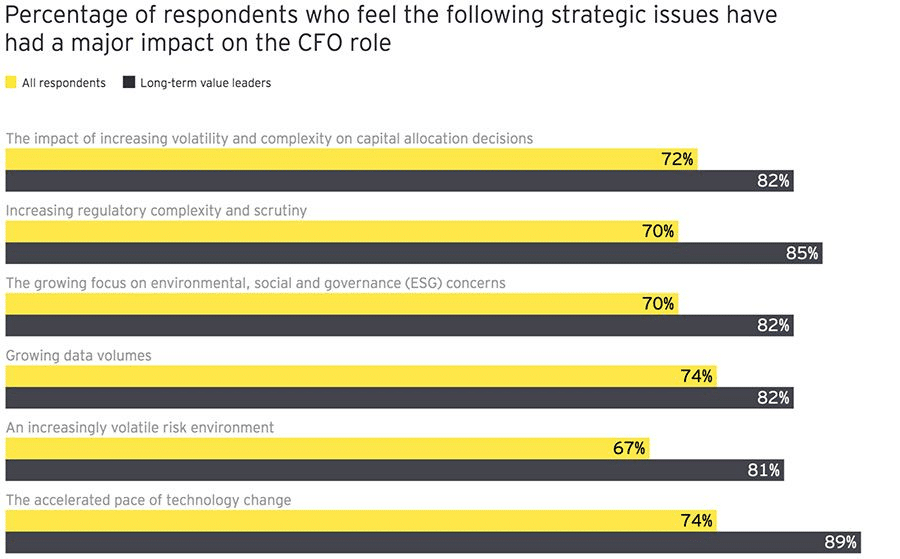
All executive roles have experienced immense pressure since 2020, as organizations have been forced to navigate ever-changing conditions. The Chief Financial Officer has shouldered a new set of responsibilities within their job as the role continues to evolve.
Digital transformation is beginning to shape the CFO role as technology continues to advance and companies begin to increase their use of automation. CFOs are seeing small steps toward digital workflows, such as robotic process automation (RPA) for accounting. These new inclusions are evolving executive roles as less time is needed for accounting, which provides room to expand into other responsibilities.
The Impact of COVID-19
CFOs play a crucial role in stabilizing companies, mapping out the path to growth, and building resilience within an organization.
Top financial experts, including Ishaan Seth, leader of the Strategy and Corporate Finance Practice in the Americas and head of McKinsey’s Financial Services Practice warn, “We must be prepared for a significant economic shock, which we think will have an impact on global GDP in the range of 8 to 13 percent.” Predictions like this one are guiding the decision-making of financial professionals as they strategize preparedness scenarios to minimize potential future losses.
CFOs are also experiencing the sense of isolation that accompanies these newly defined positions. These leaders must take responsibility for making the final call on a series of tough decisions that must be made if the organizations they head are to be preserved.
Strong C-suite relationships have long been the backbone of successful organizations. CFOs are now relying on forming close, collaborative relationships with their Chief Executive Officers (CEOs) to establish a strong leadership team capable of confidently taking their organization into the future. Partnerships between CFOs and CEOs are widely recognized as an effective strategy for easing the intense pressures company leaders face.
How D&I is Shaping Executive Appointments
The increased focus on Diversity and Inclusion (D&I) policies and practices is bringing more attention to who is being appointed to leadership roles. Current heightened awareness of inequality within the workplace has propelled social justice initiatives that analyze the way organizations handle diversity, encourage inclusion, and adopt a culture of transparency in cases of financial mismanagement.
The Eton Bridge Partners CFO Pathways Report shows a slow shift toward adopting gender-balanced hiring practices. For instance, 14% of all CFOs in the United Kingdom are female and the data shows an upward trend in diversity hires.
In addition to documenting this swing toward more inclusive business practices, the Eton Bridge Partners report reveals 49 to be the average age of a CFO for listed and private companies. This is younger than the listed CEO average, which is 55.
Average Age of CFO
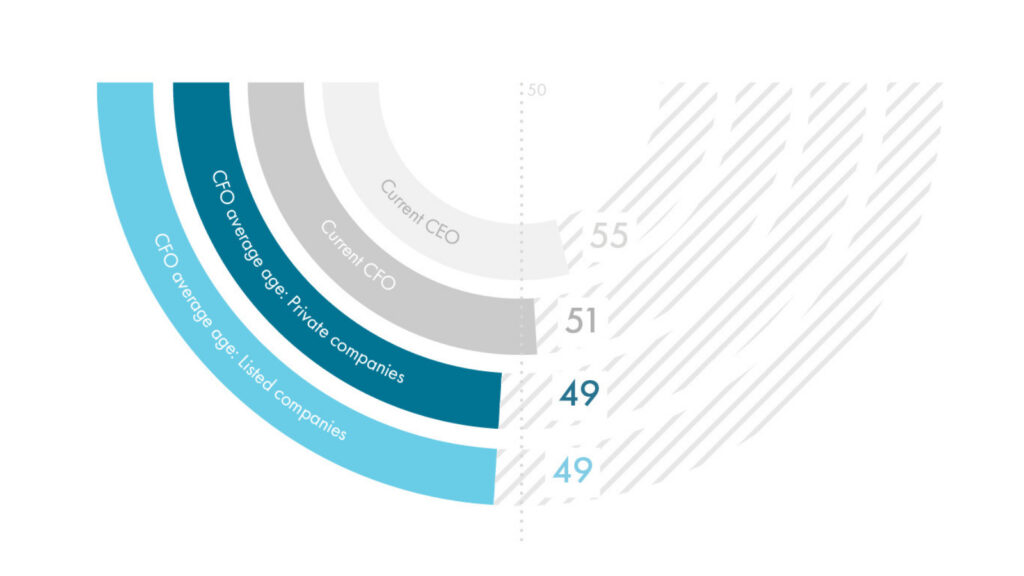
Internal promotions to CFO are rare. Candidates who want to step into a CFO position may be interested to learn internal promotion is the least likely path to this executive role. 80.5% of CFOs are external hires.
Experience takes precedence over internal promotion for companies when it comes to deciding who to appoint as their organization’s Chief Financial Officer.
How Experience Impacts CFO Appointments
When determining the best fit for their next role, many CFOs may question if it is possible to move between different organizational types. Reviewing career path data from BoardEx, the report suggests candidates can make the switch.
Internal versus External Placements
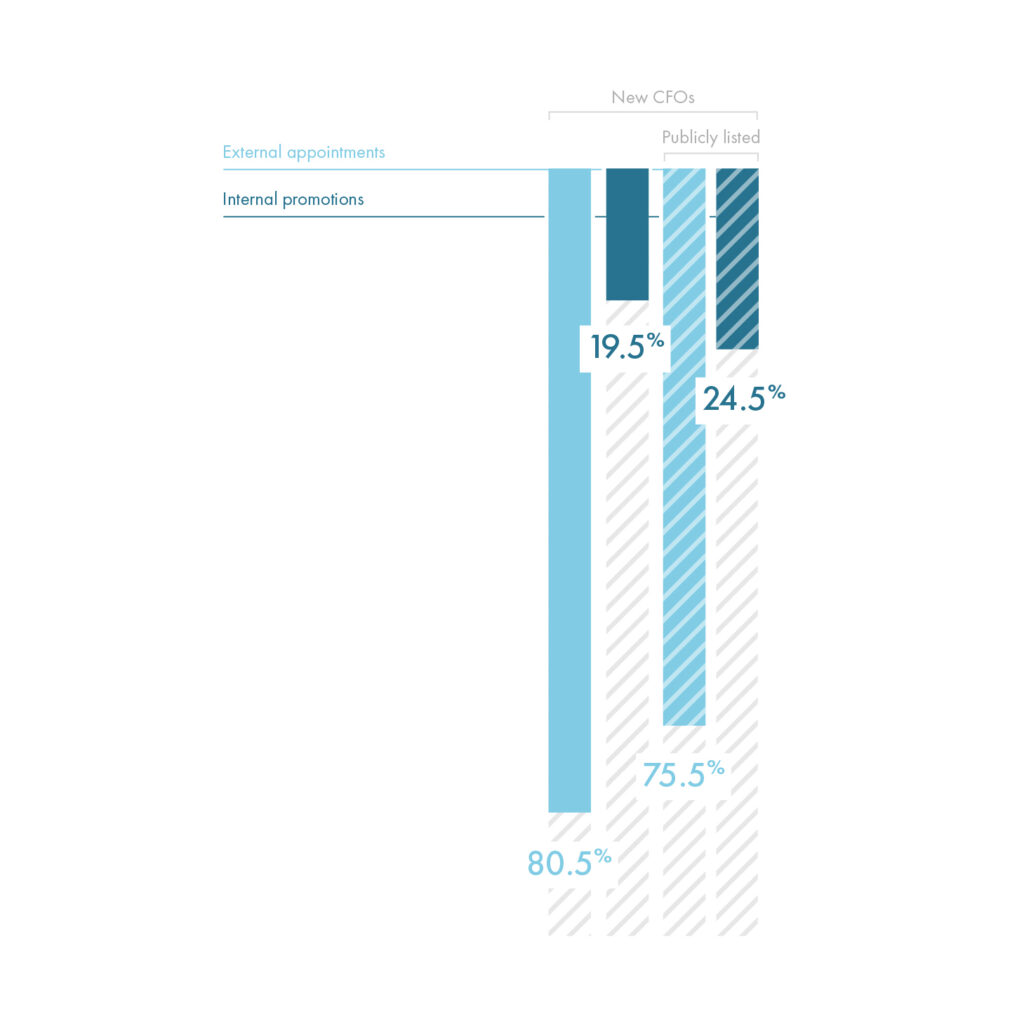
61.5% of newly hired CFOs came from a previous CFO role. Combining the title Group Finance Director, which is often used interchangeably, 69.9% of new hires show previous experience in the role.
It is significantly easier to move from private equity (PE) to a public limited company (PLC) as opposed to the other way around. Only 27% of CFOs appointed to PE businesses did not have previous PE experience.
Private Equity, PLC & Charities
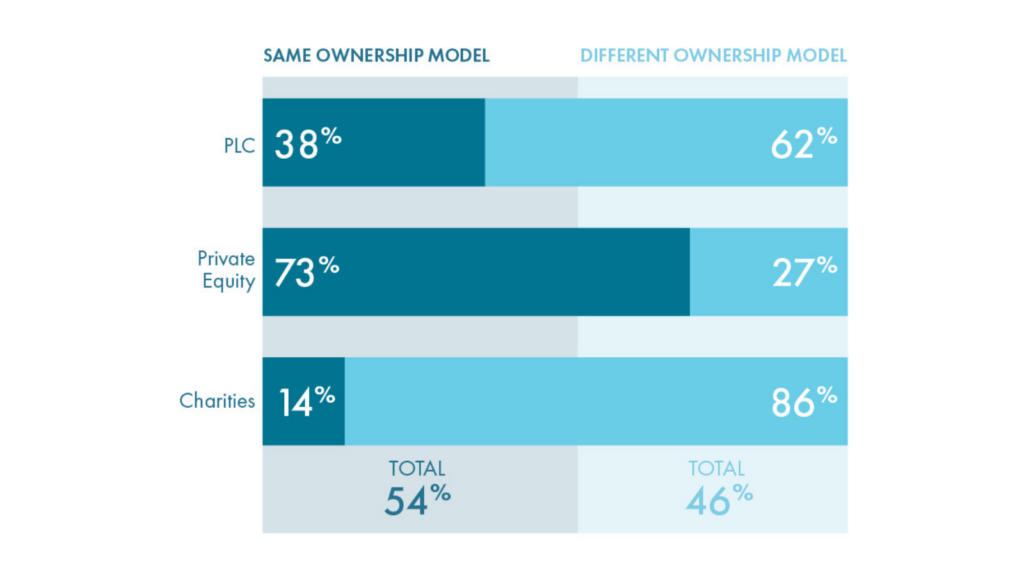
The data in the report shows that traditional ACA qualifications remain the most likely route to gaining a CFO appointment, but it does not discredit other paths. Out of 513 CFOs who disclosed their education, 7% are CIMA qualified and 3% are ACCA qualified.
Approximately 70% of all new CFOs have a background in a different sector, which demonstrates a trend in transferable skills across sectors. When analyzed further, the data suggests similar sector experience occurred earlier in the appointee’s career.
Sector Moves
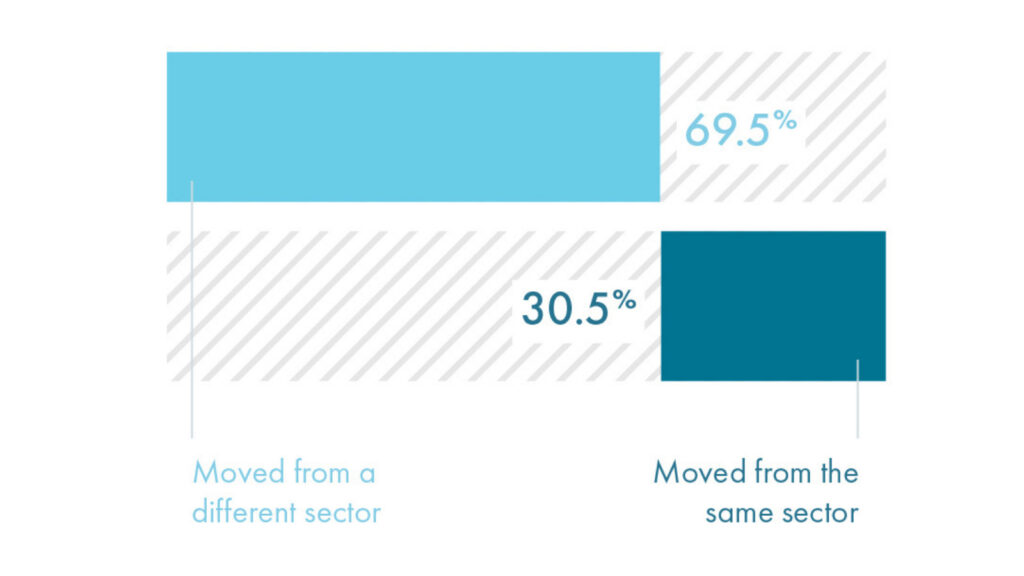
How Technology is Shaping Executive Positions
Digital transformation continues to shape C-suite roles. Small shifts through the addition of artificial intelligence (AI) or automation software into a company’s workflow is changing the landscape for financial professionals. While many organizations still have a long way to go before becoming fully digitalized, the inclusion of software is beginning to shape executive positions.
As industries continue to juggle multiple tasks in their recovery efforts, Chief Financial Officers are being looked to as pivotal players in advancing a path forward. The search for dynamic CFOs who will lead groups toward resilience in future endeavors is crucial.
Organizations are seeing successful outcomes from hiring CFOs who have had the foresight to reduce operating costs. There is every indication that moving forward, organizations will continue to rely on CFOs for innovative plans for the future.
Stephan Tarrant, Partner, CFO Practice at Eton Bridge Partners notes “the level of attention on the role of Chief Financial Officer has never been higher.” If you are an aspiring CFO or work for an organization that is looking to appoint a new one, download the full report here. The findings in the CFO Pathways report show what is important to companies hiring for this role during these uncertain times.
